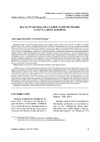Identificador persistente para citar o vincular este elemento:
https://accedacris.ulpgc.es/jspui/handle/10553/72533
| Campo DC | Valor | idioma |
|---|---|---|
| dc.contributor.author | Aguiar Quintana, Juana Teresa | en_US |
| dc.contributor.author | Henning, Corinna | en_US |
| dc.date.accessioned | 2020-05-18T12:42:05Z | - |
| dc.date.available | 2020-05-18T12:42:05Z | - |
| dc.date.issued | 2013 | en_US |
| dc.identifier.issn | 0423-5037 | en_US |
| dc.identifier.other | Dialnet | - |
| dc.identifier.uri | https://accedacris.ulpgc.es/handle/10553/72533 | - |
| dc.description.abstract | Europa es la principal región turística a nivel mundial según la OMT (2013) recibiendo 535 millones de turistas internacionales en 2012. Además, la importancia del turismo en España es incuestionable con un PIB que depende en gran medida del sector turístico siendo la industria hotelera fundamental en la economía española. Sin embargo, España mantiene hoy en día una clasificación hotelera atendiendo a determinadas estructuras arquitectónicas y diversos requisitos técnicos, sin tener en cuenta aspectos como el servicio y la calidad humana, variables muy valoradas por los turistas. Sabiendo que en Europa existen actualmente importantes esfuerzos hacia una clasificación hotelera común, nuestros principales objetivos en este trabajo son: revisar la literatura sobre la clasificación hotelera en los principales destinos turísticos de América, Asia y Europa; analizar los antecedentes y la situación actual de las legislaciones sobre la clasificación hotelera en número de estrellas en España a través de una revisión de la literatura existente sobre este tema; exponer los esfuerzos de la Unión Europea (UE) en la última década hacía una clasificación hotelera común; y, por último profundizar si al turista internacional (desde el lado de la demanda) y a los hoteleros europeos en general, y a los españoles en particular (desde el lado de la oferta), le conviene más una clasificación hotelera homogénea o si, por lo contrario, sería conveniente mantener el sistema de clasificación hotelera heterogénea | en_US |
| dc.description.abstract | Europe is the leading tourist region in the world by the WTO (2013) receiving 535 million international tourists in 2012. Moreover, the importance of tourism in Spain is unquestionable with a GDP that depends largely on the tourism sector and with a hotel industry relevant for Spanish economy. However, Spain still has a hotel classification in response to specific architectural structures and various technical requirements, without regard to issues such as human service and quality, variables highly valued by tourists. Knowing that in Europe there are currently major efforts towards a common hotel classification, our main objectives in this paper are: review the literature on hotel classification in the main tourist destinations in America, Asia and Europe; analyze the background and the current status of the laws on hotel classification in number of stars in Spain through a review of the literature on this topic; mention the efforts of the European Union (EU) in the last decade for a European Hotel Classification System; and finally, analyze if the international tourist (from the demand side) and European hoteliers in general and Spanish in particular (from the supply side), will need anhomogeneous hotel classification or, on the contrary, it would be appropriate to maintain the hotel classification system heterogeneous. | en_US |
| dc.language | spa | en_US |
| dc.relation.ispartof | Estudios Turísticos | en_US |
| dc.source | Estudios Turísticos [ISSN 0423-5037], n. 197, p. 9-41, (2013) | en_US |
| dc.subject | 531290 Economía sectorial: turismo | en_US |
| dc.subject.other | Sistema de clasificación hotelera | en_US |
| dc.subject.other | Normalización | en_US |
| dc.subject.other | Unión Europea | en_US |
| dc.subject.other | Turismo | en_US |
| dc.subject.other | Standardization | en_US |
| dc.subject.other | Hotel classification system | en_US |
| dc.subject.other | European Union | en_US |
| dc.subject.other | Tourism | en_US |
| dc.title | Hacia un sistema de clasificación hotelera común a nivel europeo | en_US |
| dc.type | info:eu-repo/semantics/Article | en_US |
| dc.type | Article | en_US |
| dc.identifier.url | http://dialnet.unirioja.es/servlet/articulo?codigo=4620503 | - |
| dc.description.lastpage | 41 | en_US |
| dc.identifier.issue | 197 | - |
| dc.description.firstpage | 9 | en_US |
| dc.investigacion | Ciencias Sociales y Jurídicas | en_US |
| dc.type2 | Artículo | en_US |
| dc.contributor.authordialnetid | 298682 | - |
| dc.contributor.authordialnetid | 3410349 | - |
| dc.identifier.dialnet | 4620503ARTREV | - |
| dc.utils.revision | Sí | en_US |
| dc.identifier.ulpgc | Sí | en_US |
| dc.contributor.buulpgc | BU-ECO | en_US |
| dc.description.dialnetimpact | 0,0 | |
| dc.description.dialnetq | Q3 | |
| item.grantfulltext | open | - |
| item.fulltext | Con texto completo | - |
| crisitem.author.dept | GIR TIDES: Economía, medioambiente, sostenibilidad y turismo | - |
| crisitem.author.dept | IU de Turismo y Desarrollo Económico Sostenible | - |
| crisitem.author.dept | Departamento de Economía y Dirección de Empresas | - |
| crisitem.author.orcid | 0000-0002-5037-0873 | - |
| crisitem.author.parentorg | IU de Turismo y Desarrollo Económico Sostenible | - |
| crisitem.author.fullName | Aguiar Quintana, Juana Teresa | - |
| Colección: | Artículos | |
Visitas
87
actualizado el 11-ene-2026
Descargas
52
actualizado el 11-ene-2026
Google ScholarTM
Verifica
Comparte
Exporta metadatos
Los elementos en ULPGC accedaCRIS están protegidos por derechos de autor con todos los derechos reservados, a menos que se indique lo contrario.
